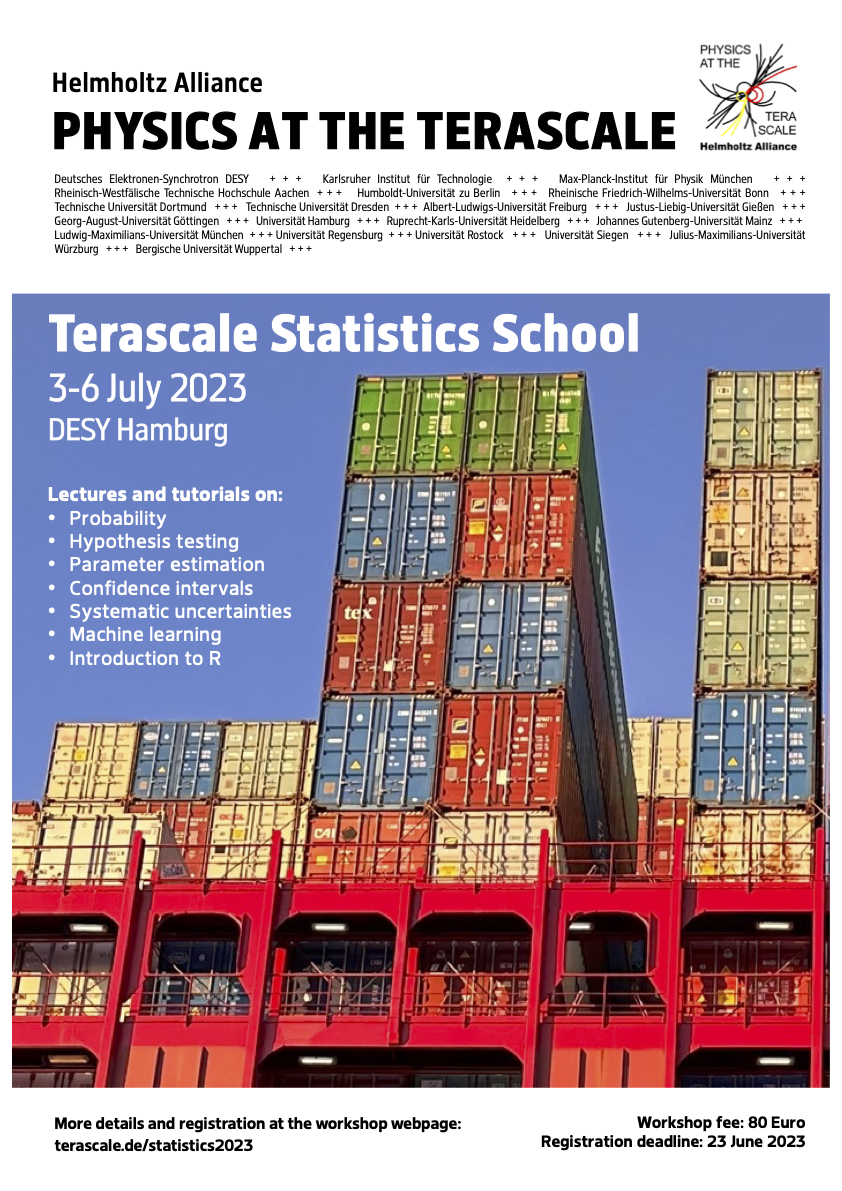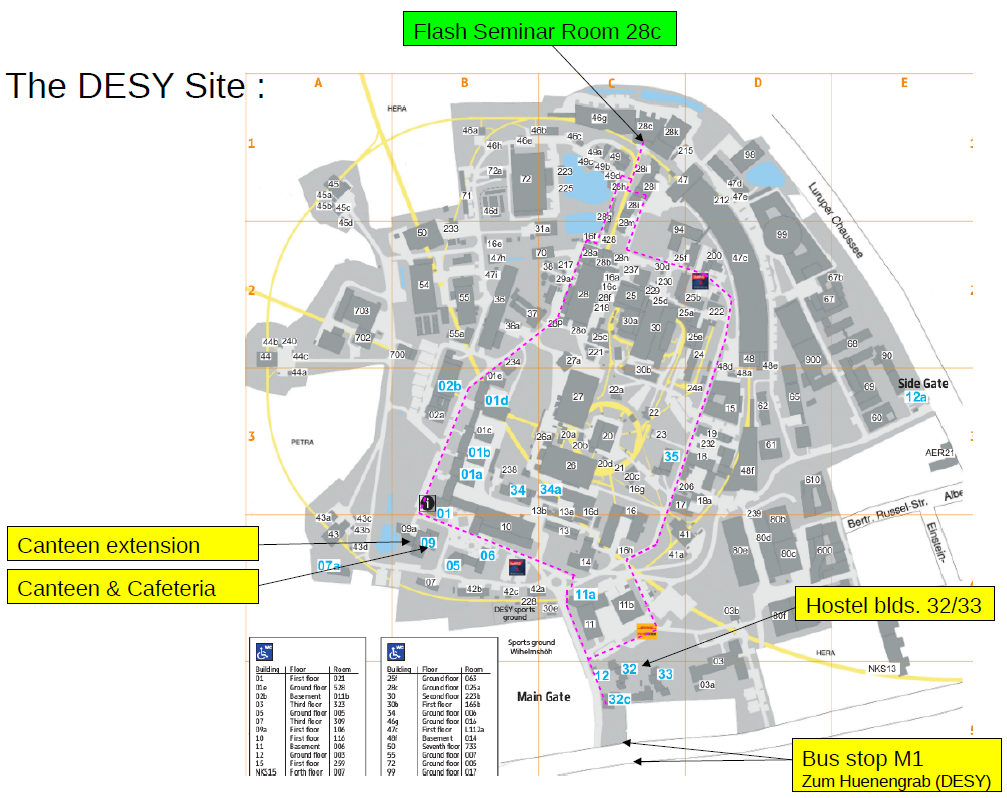Terascale Statistics School 2023
→
Europe/Berlin
Flash hall (DESY Hamburg)
Flash hall
DESY Hamburg
,
Description
 This is a basics course, providing a round-trip through statistical methods and treatments used in data analyses in HEP
This is a basics course, providing a round-trip through statistical methods and treatments used in data analyses in HEP
Lectures and interactive Tutorials on
- Probability
- Hypothesis testing
- Parameter estimation
- Confidence intervals
- Systematics
- Machine Learning
- Intro to R
given by
- Roger Barlow (Huddersfield)
- Roman Kogler (DESY)
- Harrison Prosper (Florida State University)
- Ivo van Vulpen (Nikhef)
It is expected that you can bring your own laptop for the excercises.
The school fee is 80 Euro.
Please register until 18 June 2023.
For the Q&A session on thursday, July 6 at 2pm, please dump your questions in this editable google docs file

Participants
Alberto Belvedere
Ana Rita Alves Andrade
Anatolii Korol
Antonio Matteri
Anubhav Gupta
Arul Prakash
Ashraf Mohamed
Bastian Diaz Saez
Benno Kaech
Bianca Raciti
Bogdan Wiederspan
Bohdan Dudar
Bryan Bliewert
Celine Stauch
Cristina Giordano
Cédrine Alexandra Hügli
Daina Leyva Pernia
Daniel Christian Hundhausen
Daniel Heuchel
David Sabasch
Dominik Werner Wolf
Fiona Ann Jolly
Gabriele Milella
Georgios Melachroinos
GIULIA LUSETTI
Harrison Prosper
Hiu Sze Wu
Ioannis Paraskevas
Isabella Oceano
Jamal Slim
Jan Voss
Janek Moels
Jaroslav Storek
Jeremi Niedziela
Johanna Matthiesen
Jose Alejandro Rubiera Gimeno
Kadir Tastepe
Keila Moral Figueroa
Lars Linden
Laurids Jeppe
Linghua Guo
Lovisa Rygaard
Lukas Ebeling
Magdy Louka
Mangesh Sonawane
Marawan Barakat
Marco Simonte
Maryam Bayat Makou
Maryam Shooshtari
Melih Kara
Mykyta Shchedrolosiev
Nathan Bruno Emmanuel Yves Prouvost
Nayaz Ab
Nils Sültmann
Olaf Behnke
Raimundo Hoppe
Rene Fabian Reichow
Rikhav Shah
Roger Barlow
Roman Kogler
Rufa K M Rafeek
Ruohan Li
Sara Taheri Monfared
Savannah Clawson
Stella Felice Schaefer
Sukeerthi Dharani
Supriya Sinha
Viacheslav Kosterin
Victor Ruelas
Weronika Stanek-Maslouska
Yannick Fischer
Ying An
Support
